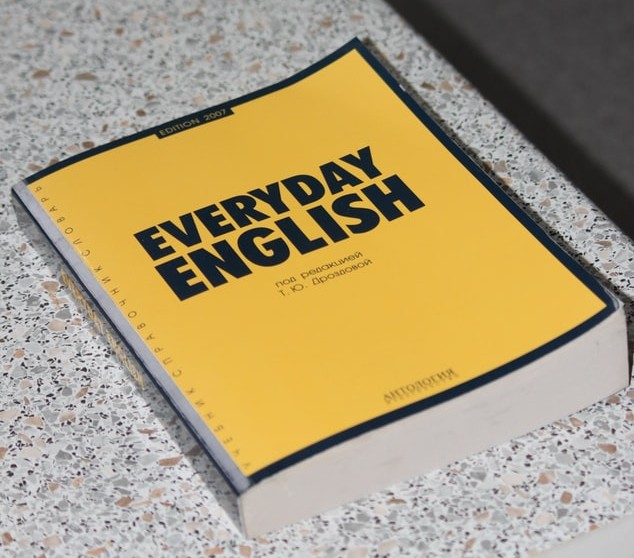
22 Most Common Phrases in 3 Most Common Languages
When learning a new language, a good number of people focus on grammar and vocabulary. Although these two are essential, there is a lot more you will need to learn to improve your skills and master the language. Every vernacular has its own phrases and expressions that have a cultural meaning behind them and should not be taken literally.
These expressions, idioms, and proverbs enrich the vocabulary, helping people to attain fluency and sound more natural. Learning these key words and phrases ensures you understand the context of many more conversations, allowing you to communicate more clearly.
These phrases will come in handy, especially when talking to native speakers, making you sound more confident.
7 Most Common Phrases in English
The following common expressions are used in both spoken and written English. You are likely to come across the expressions when watching TV, movies, or visiting English-speaking countries.
- A Blessing in Disguise
This is a common expression in everyday conversations, especially in the United States. The phrase that is used to refer to a good thing that appeared to be bad at first is used as part of a sentence.
- Beat Around the Bush
The underlying meaning of this is to avoid saying what you mean, mainly because it is difficult or unpleasant. This is used as part of a sentence and is normal among both native and non-native speakers.
- Your Guess is as Good as Mine
This is used as a response when you do not know the answer to a question or the solution to a problem. It is used by itself rather than as part of a sentence.

- Add Insult to Injury
While you may not hear this every day, it is a normal expression that means to make an already bad situation worse. This idiom is used as part of a sentence.
- The Devil is in the Details
The hidden meaning of this is that something may look good from afar, but you will notice problems when you look closer. The expression should be used by itself.
- A Little Learning is a Dangerous Thing
This is a familiar and easily understood expression. It means that people who do not understand something fully are dangerous. You can use the phrase to spice up your English when speaking.
- Those Who Live in Glass Houses Shouldn’t Throw Stones
This is used to say that people with questionable morality should not criticize others. This is a complete sentence that is used by itself.
8 Most Common Phrases in Spanish
If you are learning Spanish as a new language, there are a number of commonly used phrases you should familiarize yourself with to not only make it easy for you to use the expressions when necessary but also respond to them appropriately.
- Buenos días, Buenas tardes, and Buenas noches
There is no better place to start than with Spanish greetings. These three expressions mean good morning, good afternoon, and good evening, respectively. The greetings are incredibly important in Spanish.
- Lo siento
When learning any language, it is essential that you know how to apologize. This translates to I am sorry. Learning this statement will make it easy for you to communicate and connect with native speakers.
- Te amo
Another important expression to learn is ‘I love you’ in Spanish. There are many situations where you may need to use this, making it important to be familiar with the text and pronunciation.

- Necesito ayuda
This is Spanish for ‘I need help.’ There is no doubt that this is one of the most important expressions to learn because you may find yourself in a situation where you need help when you least expect it.
- Adios, chao, hasta luego, hasta pronto and hasta la vista
There are several phrases that you can use to say goodbye in Spanish. Adios and chao mean goodbye, while hasta luego, hasta pronto and hasta la vista are used to say later, see you soon and until we see each other again respectively.
- Buena suerte!
Once you have made friends with a few Spanish native speakers, there will be times when you will want to wish them good luck. Buena suerte will be the expression to use at such times. It is common for people to wish each other a good appetite from time to time.
- Buen provecho
It is normal for people to wish each other a good appetite from time to time. Buen provecho means enjoy your meal, an expression that can be used in different settings.
- Feliz Cumpleaños!
This expression is Spanish for Happy Birthday! Considering how frequently you may need to use this, it is essential that you learn its meaning and how to pronounce it properly.
7 Most Common Phrases in Chinese
Chinese is one of the most widely spoken languages in the world. As the world changes, learning the vernacular is becoming increasingly important for people who are looking to do business on a global scale. Here are some of the common expressions in Chinese.
- Xiè xie
When learning a new language, you will need to know how to express gratitude. This is a simple way to say thank you in Chinese.
- Bú yòng xiè
This phrase loosely translates to ‘no need for thanks.’ It is commonly used as a response to thanks, making it a regular and important phrase to learn and remember.
- Nǐ hǎo
Regardless of the vernacular, most conversations start with greetings. This is Chinese for hello, while nǐ hǎo ma is ‘how are you?’

- Duì bu qǐ
You will also need to know how to apologize. This phrase means ‘I am sorry’ and could come in handy in different settings and conversations.
- Nǐ huì shuō yīng yǔ ma?
When traveling around China, you cannot assume that everyone you meet speaks English. This translates to ‘Do you speak English?’ Before asking this question, make sure you are able to understand the responses.
- Xǐ shǒu jiān zài nǎ lǐ?
‘Where is the bathroom?’ This is an important expression that will help you communicate if the bathroom sign is not in English.
- Bù hǎo yì si, wǒ méi tīng dǒng
As you learn the language, there are times when someone will say something that you do not understand. This express means ‘I’m sorry, I don’t understand.’
Professional Translation Services for Many Applications
Learning a new language takes time. However, even after achieving fluency, you will have to ensure you communicate clearly and accurately by using grammatically correct sentences and pronouncing words correctly.
Etcetera Language Group, Inc. provides translation services to help you communicate with your target audiences in different parts of the world. Contact us today to learn more about the services we offer.
More...
Categorised in: Blog, Language Details





